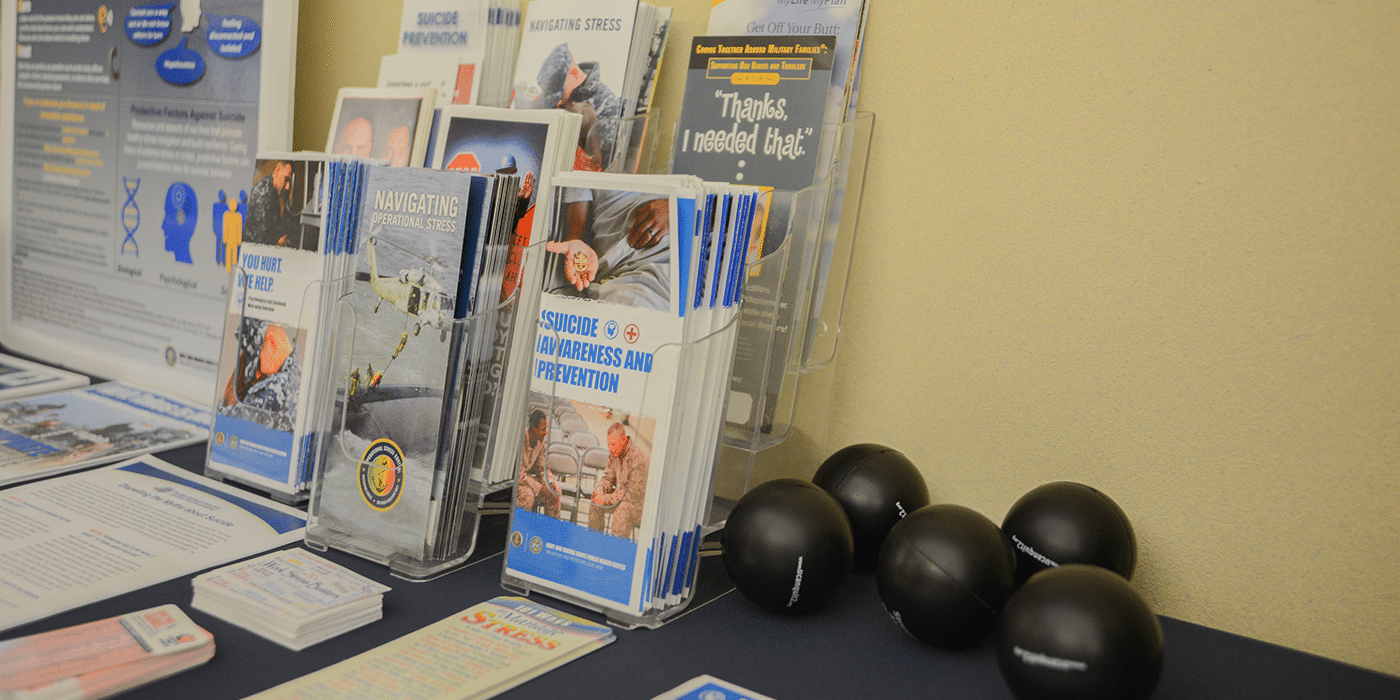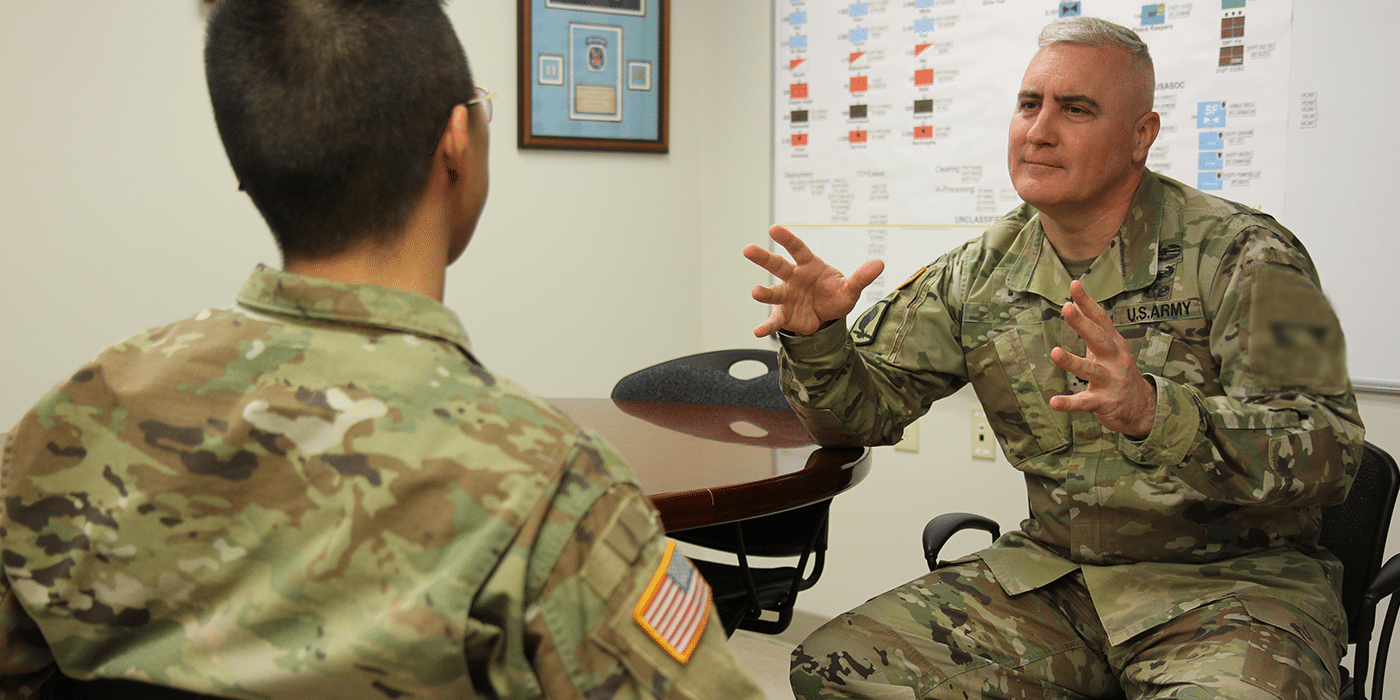
- The App
- Sandboxx News
- Resources
Learn
- Company
About
Become a Partner
Support
- The App
- Sandboxx News
- Resources
Learn
- Company
About
Become a Partner
Support
1 in 5 people experience mental health challenges. In the military, one in four active duty members have mental health issues, according to a 2014...

1 in 5 people experience mental health challenges.
In the military, one in four active duty members have mental health issues, according to a 2014 JAMA Psychiatry published study. There are a variety of mental health conditions that can impact the way people function, think, and perform their duties.
The most common mental health issues for service members:
Since September 8-14 is National Suicide Prevention Week, we wanted to share resources to let you know there’s help out there if you need it. You’re not alone, even if it may feel like it some days.

If you’re feeling suicidal and are thinking about hurting yourself or others, call 911 immediately. Don’t wait for the feelings to pass. If you hear of a fellow service member speaking about harming themselves, get help ASAP. In addition to calling 911 for help, a military base chaplain can assist with these situations as well.
Need to talk to someone immediately? Contact any of these resources for confidential help:
This resource is for ALL service members, including National Guard and Reserve members. Veterans can use this resource as well.
Call: 1-800-273-8255 (and press 1)
Text: 838255
Start a crisis chat here
This free, 24/7 service offers confidential text messaging support for those having a mental crisis. Even if you don’t want to talk on the phone, you can still reach out for help.
Text the word “HOME” to 741741
If you’re feeling overwhelmed due to a natural or human-caused disaster, you can get immediate crisis counseling to help with emotional distress. This includes going through a situation like an earthquake, tornado, flood, hurricane, or incidents of mass violence.
Call: 1-800-985-5990
Text: “TalkWithUs” to 66746
Sometimes you just need to talk through your emotions.
These resources are ideal if you’re looking for a counselor to see short-term or long term to discuss issues you may be dealing with like work-related stress or family problems. Veterans in particular can find specific resources through Veterans Affairs (VA).
Below, each site has a search option to help you find a health care provider in your area if you don’t want to see a military treatment facility provider.
Here are a few options to locate a provider near you:
Other options to consider: For more urgent needs, visit a local military hospital or psychiatric facility. Not sure what type of mental health services you need? Ask your primary care provider for advice on the best mental health services relevant to your needs.
Some members may be afraid to seek mental health help due to stigma or negative career interference. It’s important to know you do have privacy rights as defined under military policy.
Even a Department of Defense (DoD) healthcare provider must follow HIPAA privacy guidelines. This is to ensure you can freely discuss your mental health conditions and that those conversations will remain private in most situations. Health concerns like anxiety and depression can be discussed confidentially.
However, your health condition may be revealed to your chain of command if:
A medical healthcare provider may share recommended duty limitations and your diagnosis, if needed.
If you notice mental health changes that concern you, it’s best to seek out care yourself for a better chance of keeping conditions confidential. If your leadership observes any behavior that may jeopardize your job performance or safety, you may be required to seek a command-directed evaluation instead.

No matter the desperate situation you find yourself in, there is help.
Any of the resources above offer experienced professionals who are willing to listen and you talk through any situation that may seem helpless. Additionally, if you see a fellow service member struggling, offer these resources and encourage them to seek help. And you can always be a listening ear, too.
A few tips for having conversations about mental health:
We all can have a hand in preventing suicide, not just during National Suicide Prevention Week, but every single day. If you’re struggling, help is just a call, text, or chat message away.
Everyone has different struggles and different ways of handling feelings, and there’s nothing wrong with seeking out emotional support. Talking through your emotions may save your life.
If you or someone you love is thinking about suicide, contact the National Suicide Prevention Hotline at 1-800-273-8255. Your call will be confidential and is free.




